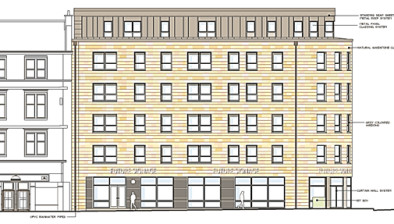Housing association tenant’s ‘sympathy’ appeal against eviction refused

Tenants seeking to challenge court rulings granting eviction must have “cogent and compelling reasons” for suggesting that a sheriff’s judgment was wrong.
Sheriff Principal Craig Scott QC at Glasgow Sheriff Court held that too many cases were essentially appeals for “a second chance” or “sympathy”.
Danuta Harasimowicz had sought to appeal against an order for her ejection from the property she leased from Glasgow West Housing Association Ltd, together with decree for payment of £1,409.70 in arrears of rent, after she was found to be in breach of the tenancy agreement with the landlord.
The tenant represented herself in the appeal, but the sheriff principal observed that none of the issues raised by her led the court to conclude that the sheriff had erred in any way in granting decree.
“In effect, the defender’s (tenant’s) line of argument involved trying to persuade the court that sympathy towards her plight taken along with a massively optimistic approach to her future ability to generate income was sufficient and relevant to justify allowance of the appeal,” Sheriff Principal Scott said.
The sheriff’s note stated that the tenant had in fact left the tenancy in December 2013 to go to Poland and had only returned in December 2014.
She had not paid rent during that period and had failed to use the tenancy as her principal home.
The tenant had opposed the housing association’ motion for decree and ultimately sought to have the case continued further for investigation to take place and for a repayment arrangement to be entered into.
But the sheriff noted that the tenant was in considerable arrears and that any suggestions about repayment were “speculative and woolly”.
The sheriff had also been told that the tenant was applying for job seekers’ allowance, but in the circumstances considered that it was “reasonable” to grant decree for recovery of possession.
In a written judgment, Sheriff Principal Scott said: “In my opinion, nothing said by the defender in support of her appeal served to merit the decree granted by the sheriff being recalled. The defender’s financial position is extremely difficult and largely arises through her own decision to go to Poland, a decision which appears to have been wholly ill-conceived.
“On appeal, nothing was said about any colourable health issues and the formulation adopted by the sheriff in his note, viz. ‘speculative and woolly’ applied equally to the defender’s assessment of her current predicament and any ability to remedy the situation going forward. I have concluded that it was entirely reasonable for the sheriff to grant decree for recovery of possession and that this appeal should be refused.”
In the course of her submissions, the solicitor for the housing association also referred to the 2002 case of City of Edinburgh Council v Forbes, in which it was observed that “reasonableness is not itself a fact but instead a concept or conclusion determined by an exercise of judgement”.
Sheriff Principal Scott added: “Similarly, in my view, appeals in cases of this nature should never amount to an appellant, in effect, requesting that the court should give the appellant ‘a second chance’ or should find greater sympathy with the appellant’s predicament or should be invited to consider material not presented to the sheriff when decree was granted.
“In advancing appeals in such cases, both parties and their legal advisors must be aware that cogent and compelling reasons for suggesting that the sheriff erred in the aforementioned exercise of his judgment are required.
“Too often, as it would appear in this case, appeals are lodged with grounds which (to use the sheriff’s phraseology once again) are speculative and woolly. In effect, they serve to buy more time for an appellant whose overall circumstances suggest that eviction is not just reasonable but inevitable and where there is no material available to suggest that the sheriff in question plainly erred.”









